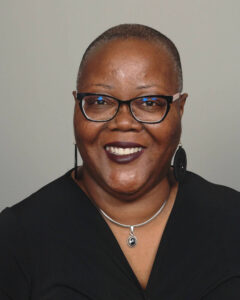
AARP and Reflections on Becoming a Faithful Elder and a Good Ancestor
During the week of my fiftieth birthday, I was surprised to receive a letter and membership card from AARP—American Association of Retired Persons. Upon inspecting the envelope and its contents, my mind traveled back to a brief, yet profound conversation I had with my grandmother, who I call Queen Bee, when I was twelve years old. We were having lunch at our favorite fast-food restaurant. We placed our order and the cashier announced the total along with the senior discount Queen Bee received. Excitedly, I exclaimed, “I can’t wait until I am old enough to get a senior discount!” “That’s ridiculous,” Queen Bee vehemently responded, “You don’t look forward to being a senior to pay less.” This was not the message I was trying to express. I simply thought it was “cool” that seniors received discounts, when young people did not. In my twelve-year-old mind, elders earned the discount for having lived a long life. To me, elders were worthy of respect, and I was happy to see McDonald’s acknowledge that.
Recently, I revisited these thoughts about senior status when I participated in Auburn Theological Seminary’s Center for Storytelling and Narrative Change’s Healing the Future Gathering. Thirty-five storytellers gathered from around the United States to share their letters to the future. Surveying the storytelling circle, I realized I was one of the older persons present in a group of mostly Millennials and Gen Zers. I remembered my twelve-year-old perspective about respecting elders. I touched my silver sideburns and asked myself, am I becoming an elder? Throughout the gathering, I was respectfully and kindly approached, cared for, and questioned politely. Continuing to contemplate, I pondered retirement, being elderly, and identifying with what it means to be a senior citizen.
I am fifty-five years old, and eligible for a senior discount; however, I am not elderly. Nevertheless, my perspective on how I view myself and younger generations has changed. Teaching in higher education for seventeen years places me beyond early-career status and somewhere between mid- and late-career teaching faculty. As a seasoned teacher-scholar, I see myself adding value to conversations and collective engagement, more so than I have in the past. I am not elderly, but I now join the company of elders.
Reflecting on the company of elders, I recall the impact another mid-career teacher-scholar had on my younger self. Dr. Katie Geneva Cannon, whose mission was to equip, encourage, and empower emerging scholars in discovering “the work their souls must have,” was my teacher, mentor, and dissertation advisor. Dr. Cannon was a faithful elder and is now a good ancestor. As a teacher-scholar moving toward retirement within the next twelve to fifteen years, Lord willing, Dr. Cannon’s elder legacy still has me asking, “What is the work my soul must have?” To become a faithful elder and a good ancestor.
As a child, I was taught to respect my elders, meaning older adults. But age does not necessarily garner respect. So I ask, “Who is an elder deserving of respect?” Based on my knowledge, engagement, exposure, observation, and conversations, I would describe a faithful elder in this way. Faithful elders are usually older, but they are not defined by age. They are recognized because they have earned the respect of their community. Their words are congruent with their actions and teachings. They are containers filled with essential wisdom. They assess situations, carrying collective and communal prophetic and generative knowledge, and offer constructive feedback. Faithful elders practice their culture, impart their culture, and help others find their culture. They are keepers of tradition, rituals, and values. Faithful elders love God, others, and themselves fiercely. Faithful elders tell stories that shape the future with hope.
Reflecting on the roles and actions of faithful elders in our families, schools, churches, communities, and society is important work of the soul. While continuing to move forward in one’s career and calling, becoming a faithful elder is vital to fulfilling one of life’s purposes, not only for oneself but for future generations.
The exercise at Auburn Seminary of listening to and absorbing hope-filled letters to the future written by younger generations focused my attention on the collective wisdom, vision, and determination presented by the storytellers. I became embarrassed that in recent years I had given so little thought to the future. Called and convicted, I thought about those who made sacrifices so I could have a future with hope. Those “good” ancestors made decisions prioritizing the quality of life for those coming after. What does it mean for me to follow in their footsteps and become a good ancestor?
As a faithful elder, I must build on the hope that has come before me. I must preserve and communicate an African-centered value system. As a faithful elder and storyteller, I must discern what to pass on and what not to pass on to the future. As a faithful elder, I must seek and offer forgiveness in the face of inhumane and unjust systems. As a faithful elder, I must tell the stories that help others to shift from a dejected mindset to one of expectancy, showing the way to a future of assurance.
Reflecting on Queen Bee, Dr. Cannon, and a future imagined by young storytellers, I recognize that I have stepped into the company of elders. And it is now my soul’s work to take up the charge of becoming a faithful elder telling stories of hope and moving toward being a good ancestor.
Leave a Reply